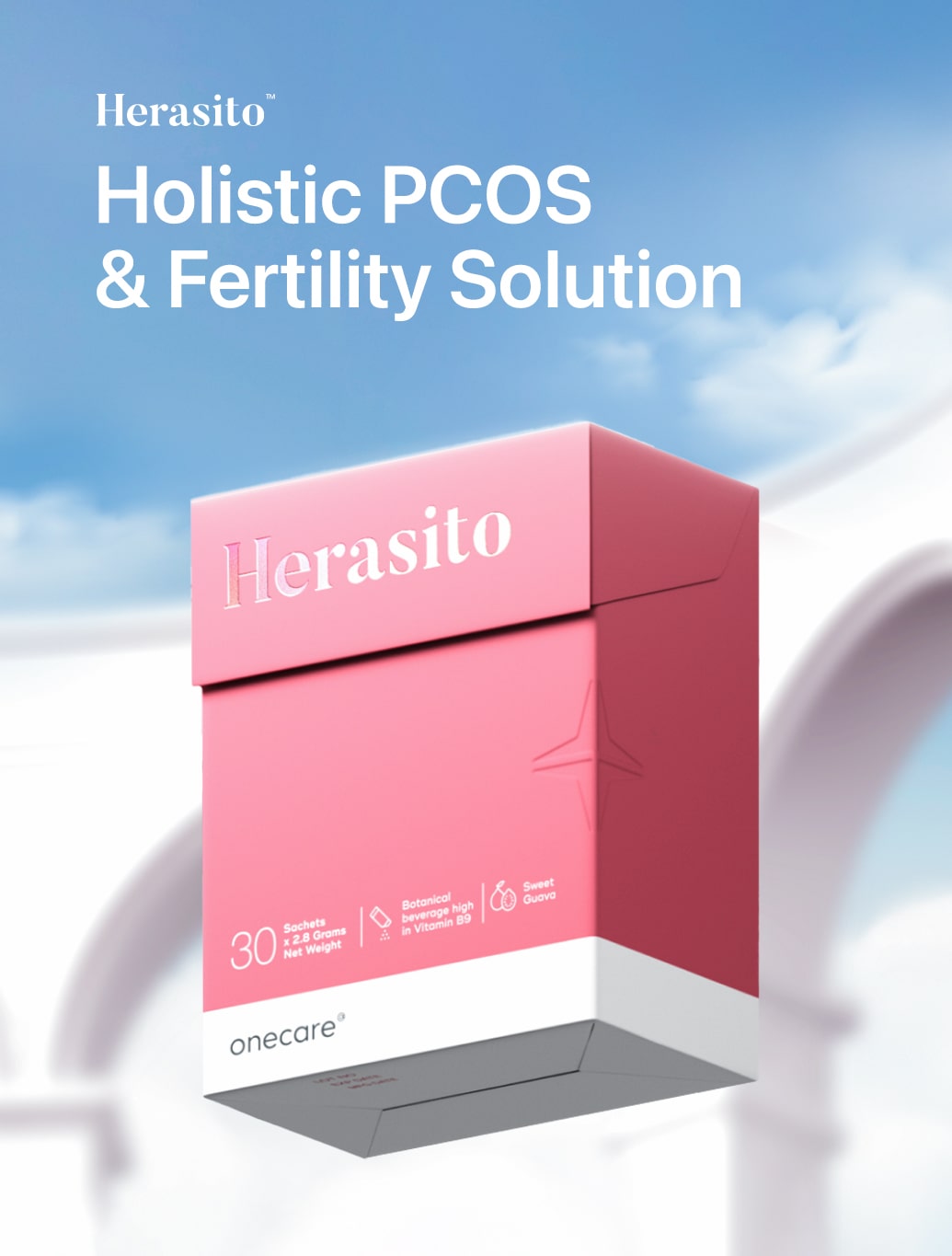Period Puzzles: Investigating 5 Factors That May Disrupt Your Cycle
Find out the surprising factors that might be behind your period's unpredictable dance: and discover a targeted natural solution for period regularity.
Having your period is a rite of passage for every woman - but it’s so much more than that: ranging from being a panicked reminder to buy pads or tampons, to a feminist topic that sparked several furious debates and societal change, most people tend to overlook the fact that periods serve as a strong indicator for a young woman’s overall health. In fact, paying attention to the regularity of your cycle is one of the easiest ways to tell if you’re healthy or not.
But here’s the problem: every woman’s body works differently and hence has periods that differ in duration, frequency, and flow - and while it may be different from someone else’s, your period can still be considered regular. So, how do we know what a healthy period is, and when should we be concerned?
Regular VS Irregular
Other than the exception of pregnancy and menopause, a normal menstrual cycle occurs roughly every 21 to 35 days, with bleeding that lasts between 3 to 7 days. If your periods:
are less than 21 days apart/more than 35 days apart
have been missing for more than 3 months
are suddenly much lighter/heavier than usual
last for more than 7 days
are accompanied by severe pain, cramping, nausea or vomiting
include spotting in between cycles,
then you are likely experiencing irregular periods, which could be an outward sign of a deeper, physical or even emotional issue. Irregular periods can be frustrating and worrisome, but understanding the potential reasons can help you approach the situation with a sense of empowerment and proactively seek the right ways to treat the root causes.
The Primary Root Cause: Hormonal Imbalance
The menstrual cycle is orchestrated by a delicate interplay of hormones, primarily reproductive hormones (luteinizing hormones, also known as LH; and follicle-stimulating hormones, also known as FSH). The other set of hormones that regulates a menstrual cycle are the sex hormones (estrogen and progesterone). Both sets of hormones are pivotal for ovulation and overall reproductive health, being responsible for the growing and shedding of the uterine lining. When the balance of these hormones is disrupted, it can lead to irregularities in the timing, duration, and flow of your periods, which can result in severe health consequences in the future.
Let's delve deeper into how hormonal imbalances occur and result in irregular periods:
Stress
High stress levels signal the body to produce cortisol, a hormone that stimulates energy mobilization and sharpens focus on preparing the body to respond to a perceived threat. However, if high levels of stress continue to persist, it can disrupt the release of both reproductive and sex hormones. Your body then prioritizes your ability to survive over the ability to procreate, resulting in irregular periods.
Low-Fat Diet
Additionally, lifestyle choices such as adhering to an extremely low-fat diet can also lead you to unpredictable cycles and hormone imbalances. Our bodies require adequate fat intake, such as cholesterol and omega-3 fatty acids, to form cell membranes and hormones. Some research has even revealed that following a low-fat diet increases the risk of infertility - so don’t throw out all your full-fat yogurt and egg yolks!
Over-Exercising
Sudden, intensive exercise induces high levels of cortisol, because your body is under the impression that you are threatened with a fight or flight situation, which depletes you of all nutrients in the process. This can cause you to bleed when you’re not on your period (spotting), or stop having a flow at all, and it is also why most athletes frequently experience irregular/missing periods.
Birth Control
The synthetic hormones in birth control pills suppress natural hormone production and ovulation, which could be an intentional decision to stop getting periods. However, stopping the birth control pill can lead to hormone withdrawal, delayed ovulation, and ultimately, irregular periods. In fact, it could take several months for ovarian function to recover naturally after suppression from the pill.
Other Hormonal Conditions
In some cases, irregular periods can be a symptom of a different underlying hormonal condition or disorder. For instance, estrogen dominance can result in menorrhagia, as the high levels of estrogen excessively thicken the endometrial lining, leading to heavy menstrual bleeding. Other conditions, such as polycystic ovarian syndrome (PCOS), perimenopause, and thyroid dysfunction, can all affect hormone production and lead to irregular menstruation.
Nutrients that Restore Period Health
Powered by a complete blend of essential nutrients tailored specifically for women’s health, Herasito™ is designed to help you restore and regularize your periods naturally.
40:1 Myo-Inositol and D-Chiro-Inositol: Sourced from Cantaloupe and Carob Bean extracts, this ratio of inositols is scientifically proven to restore ovulation and regularize menstruation.
KSM-66® Ashwagandha: Known for its adaptogenic ability to help reduce stress, this calming ingredient helps lower cortisol levels naturally. It also promotes balanced FSH levels for healthy cycles.
L-Glutathione: Derived from Spinach extract, this powerful antioxidant naturally detoxes the body of toxins caused by oxidative stress, actively restoring a healthier hormonal environment.
Vitamins B6, B9, B12, and D: Enriched with the vitamins needed for maintaining menstrual health, this combination contributes to the proper functioning of women’s reproductive system.
Ladies, it’s time to take charge of your health - restore and regularize your periods now!
Shop Herasito™
Reference:
Santoro, N. (2011). Update in Hyper- and Hypogonadotropic Amenorrhea. The Journal of Clinical Endocrinology & Metabolism, 96(11), 3281–3288.
https://doi.org/10.1210/jc.2011-1419Chavarro, J. E., Rich-Edwards, J. W., Rosner, B., Willett, W. C. (2007). A prospective study of dairy foods intake and anovulatory infertility. Human reproduction (Oxford, England), 22(5), 1340–1347. https://doi.org/10.1093/humrep/dem019
By: Zoe W.

